2024 federal budget’s biggest winners and losers revealed
From a new $300 energy rebate for all households, to more help for low-income renters, cost-of-living relief was key to the budget. Here’s what’s in it for you.
From energy rebates, to tax cuts, “responsible” cost-of-living relief that doesn’t aggravate inflation has formed the centrepiece of federal Treasurer Jim Chalmers’ third budget.
Handing down the 2024-25 budget on Tuesday night, he described it as a budget for the “here-and-now” amid “fraught and fragile global conditions,” like lingering inflation and higher interest rates.
Delivering a surplus of $9.3bn on Tuesday night, Dr Chalmers promised the government’s relief measures would not increase inflation, and claimed Australia was among the “best placed economies to manage these uncertainties and maximise our opportunities”.
For Australian families, the key cost-of-living relief includes a surprise $300 energy rebate for all families, and the government’s promised revised Stage 3 tax cuts.
However this year’s budget contained little for welfare recipients calling for increased payments, or motorists facing growing fuel prices.
Here’s what you need to know:
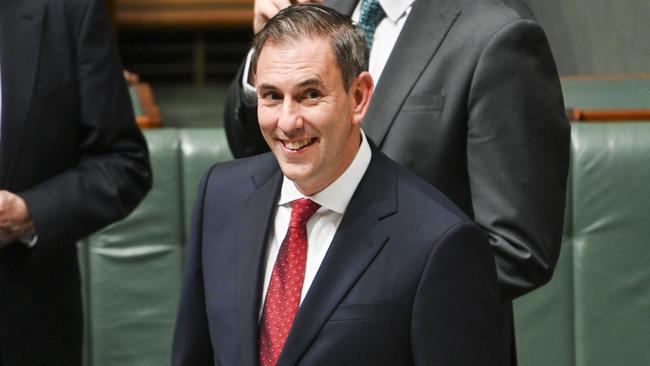
Winners
Bill payers
All households will receive a $300 energy rebate in the budget’s biggest surprise sweetener. The $3.5bn scheme also includes a $325 rebate for about one million eligible small businesses.
Low income renters
The government will invest $1.9bn to boost the maximum rates of Commonwealth Rent Assistance by 10 per cent. The measure will come into effect from September 20.
Maximum rates are now 40 per cent higher than they were in May 2022.
Taxpayers
The government has followed through with its promise to provide a tax cut to every taxpayer, averaging to $36 a week, or $1888 when they lodge their tax returns.
However, while they will still get a tax cut, high-income earners making more than $140,000 would have been better under the Morrison government’s original plan.
Australians who need prescription medication
The cost of prescription medications listed on the Pharmaceutical Benefits Scheme (PBS) will be capped at $31.60 for the next year, with costs for prescriptions for pensioners and concession card holders frozen at $7.70 for the next five years.
Aged care workers
The government has committed to boosting wages for indirect and direct aged care workers, with the exact amount to be determined once the Fair Work Commission hands down its determination.
Child care workers
Childcare workers have also been promised a wage increase, however no specific figures were given.
Women
There’s a number of measures particularly aimed at women in this year’s budget. One of the biggest costs to the budget will be paying superannuation on paid parental leave, which will amount to $1.1bn over the four-year forward estimates period, with annual costs then amounting to $623.1m from July 2028. The government is also investing in women’s shelters, and will help women fleeing domestic violence by extending the Leaving Violence Program which provides eligible women with up to $5000 in financial support.
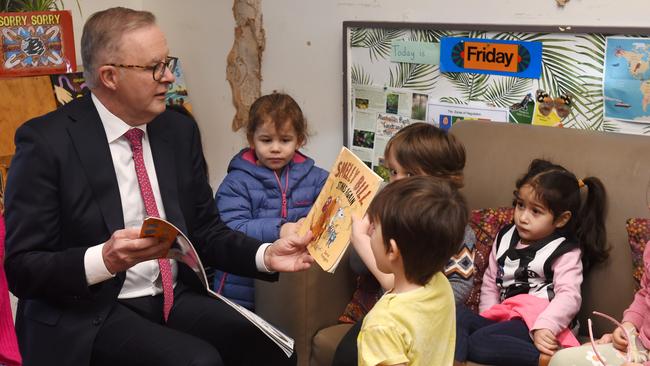
Aussies facing ill mental health
An eight-year package of $888.1m has been committed to give Australians improved access to mental health services. This includes the creation of a free “low-intensity digital service,” which will come online from January 1, 2026.
Australians will be able to access the service without a referral, with 150,000 people estimated to access the service every year.
The government has also flagged a network of walk-in Medicare Mental Health Centres for moderate to severe mental health needs, which will be open by June 30 2026.
Women with endometriosis
The federal government has announced a $49.1m investment into tackling endometriosis. From July 1, 2025, women suffering from the debilitating disease will have longer specialist consultations of 45 minutes or more covered under Medicare.
Small businesses
The $20,000 instant asset write-off, which had been slated to end on June 30 this year, will be extended for another 12 months. One million small businesses will also benefit from the $325 energy rebate, providing they meet the eligibility criteria.
Pensioners
Deeming rates will be frozen at current levels until June 30, 2025. This is estimated to help about 450,000 pensioners and 876,000 income support recipients.
Disorganised travellers
Last-minute holiday-makers will, for a price, be able to fast-track their passport applications from July 1 this year.
The five-day service will cost applicants $100, and is estimated to generate $27.4m in the five years to 2028-29.
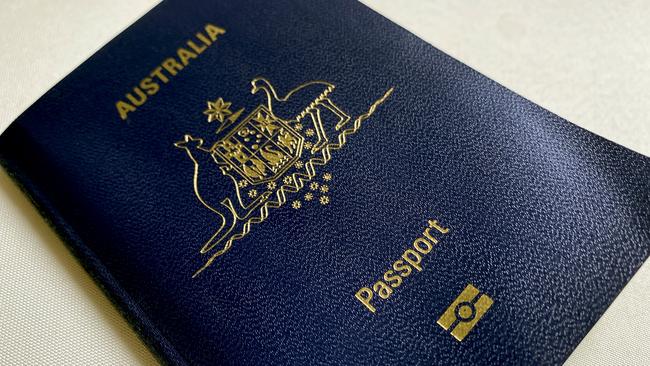
Manufacturing industry
The government will funnel billions of dollars into helping key industries boost local manufacturing and bolster investment under its “Future Made in Australia Plan”.
Labor is investing in renewables, including $1bn to bolster domestic solar capacity
Uni students and graduates
The way higher education debt interest is indexed will now be tied to whichever is lowest of CPI or the wage price index.
This change will be backdated, and will wipe $3bn in debt for about three million Australians. Those who paid off their debt between June 30, 2023 and now will receive a tax credit equal to the amount their debt would have been slashed by.
The government has also committed to providing about 73,000 university and VET students with a $320 weekly placement payment to support them.
Farmers
Labor’s Future Drought Fund will get a $519.1m boost to fund programs to help farmers and regional communities prepare for droughts and improve climate resilience.
Tradies
An additional 20,000 fee-free TAFE places/ VET apprenticeships will be offered in a bid to address the chronic shortage of tradies in the construction sector.
The government will spend $90.6m to increase the pipeline of skilled workers in the construction and housing industry.
More money has been assigned to upskilling tradies in construction to help build more homes.
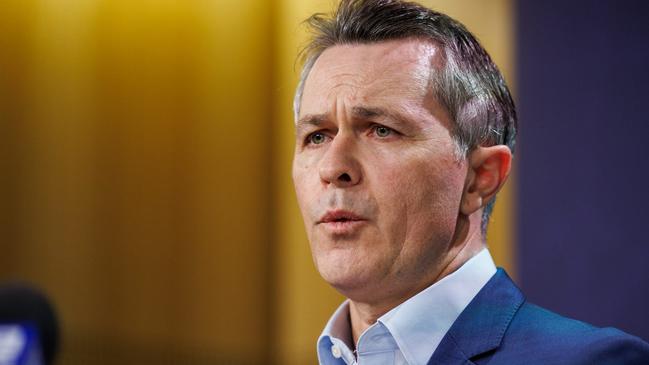
Arts sector
Australia’s leading performing art schools will be propped up with $115.2m over four years, with an additional $36.9m in ongoing annual funding for members of the Arts8 collective.
France
$20.7m has been committed to the Australia-France Roadmap in the five years from 2023-24, plus an ongoing commitment of $3.9m a year. The measures will allow for more bilateral co-operation in defence and security, cultural and sporting promotion, and the creation of a France-Australia Centre for Energy Transition to support regional climate goals.
Northern Territory
A $4bn joint investment with the Northern Territory over the next decade will aim to address overcrowding in remote housing.
Essential services in remote communities have also been given $111.1m for critical health, safety, wellbeing, schooling and justice services.
All public schools in the Territory will also be fully-funded by 2029, with the government committing $736.7m over the next four years. A similar agreement has been reached in Western Australia, where all public schools will be fully funded by 2026, in a $785.4m arrangement.
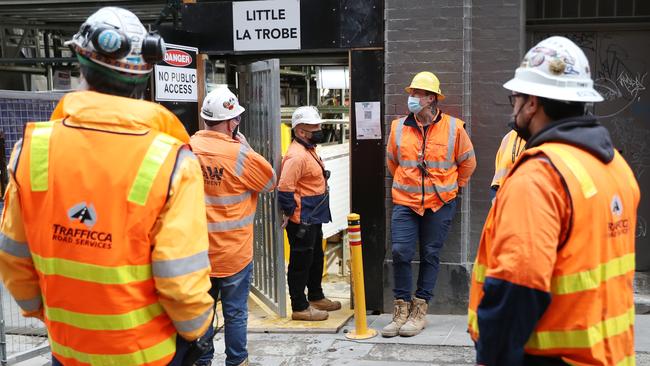
Losers
Welfare recipients
Despite loud calls for the government to increase welfare payments, people on Jobseeker and Youth Allowance won’t get any increase on their rates, currently $55 and $45 a day respectively.
First home buyers
No additional measures have been announced for first home buyers, with the budget reiterating Australia’s need for more housing stock.
A total of $6.2bn has been funneled to building more homes over a raft of schemes, with federal, state and territory governments committed to building 1.2m homes by 2029-30 under the National Housing Accords.
Universities
Universities have been told to slash the growth in overseas student numbers from about 15 per cent to closer to five per cent and will be required to build more purpose-built student accommodation in order to take international students.
Migrants
The government is determined to halve the net migration intake from 528,000 last year to 260,000 next year, which it will need to do to take pressure off the housing market.
Consultants and Contractors
The government will save $1bn in the 2024-25 budget by slashing spending on consultants, contractors and labour hire, with the government committing to prioritising and rebuilding Australia’s public service.
Motorists
There will be no changes to the fuel excise, meaning motorists won’t see any decrease at the bowser.
Sheep farmers
Australia has committed to phase out its export of live sheep by May 1, 2028. A total of $107m has been committed over five years to held producers, communities and the wider industry to adapt to the transition, with the bulk of support going to Western Australia to help expand their domestic processing capacities.
Originally published as 2024 federal budget’s biggest winners and losers revealed


